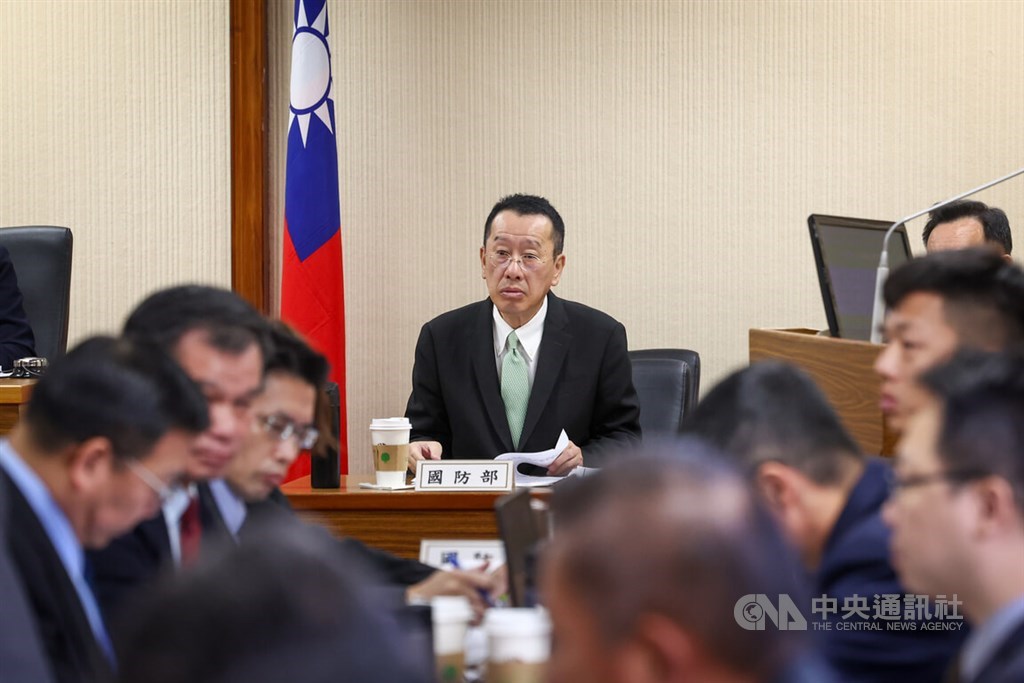Taipei, April 16 (CNA) Sixty-two active-duty military officers and soldiers currently hold a residence permit issued by the Chinese government and cannot do jobs related to collecting intelligence and confidential data, Defense Minister Wellington Koo (顧立雄) said Wednesday.
At a legislative hearing, Democratic Progressive Party lawmaker Loh Meei-ling (羅美玲) asked Koo about progress in the Ministry of National Defense’s (MND) investigation to ascertain the number of active-duty personnel in possession of Chinese identity documents.
Koo replied that as of March 20, there were no service members found to be in possession of a Chinese passport or resident identity card, which would imply Chinese citizenship.
There were, however, 62 service members who had a Chinese government-issued “Residence Permit for Taiwan Residents,” two of whom are in the voluntary service.
There is nothing disqualifying or illegal about holding this “residence permit.”
But Koo said military personnel who have them shall not, in principle, be assigned work involving operating newly acquired advanced weapons, accompanying high-ranking military officers, accessing operations and intelligence centers, or serving as chiefs of staff.
Questions were also raised at the hearing on whether the MND had enough manpower to counter Chinese espionage.
Koo said 54 service members were assigned to safeguard military secrets and counter espionage on Jan. 1, but he indicated that the MND will recruit more people in light of several recent cases of former or active-duty service members indicted on charges of spying for China.
The issue of whether Taiwanese military personnel have Chinese identity documents has been in the spotlight after a recent incident involving a member of the Navy surnamed Yang (楊), who was found to have held Chinese citizenship for 10 years.
The Navy said on Feb. 10 that Yang’s mother applied for Chinese citizenship on his behalf without his knowledge, and that he only discovered this after he signed up for voluntary military service.
The MND helped Yang file a request with the National Immigration Agency (NIA) that he be allowed to retain his ROC citizenship, and the NIA determined Yang to be a “special case,” according to the statement.
The Mainland Affairs Council, the top government agency in charge of cross-Taiwan Strait affairs, said on Feb. 13 that Yang was allowed to keep his Taiwanese citizenship after “special consideration.”
Since the conclusion of fighting in the Chinese Civil War in 1949, the Republic of China and People’s Republic of China governments have both claimed sovereignty over China and each has rejected the other side’s claims.
Under Chinese law, Chinese citizens must renounce their citizenship when they become naturalized by another country, but this does not apply to Taiwan.
Similarly, Taiwan’s law does not recognize Chinese citizenship, and those found to have a Chinese passport or household registration record can have their ROC citizenship revoked.
